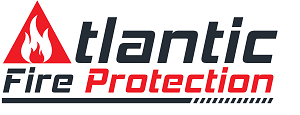For a commercial space or company owner in the US, preparing for emergencies such as fire can be confusing. There are national guidelines set for fire protection companies on how to manage fire and safety in the workplace. However, does this mean that you, as an owner, cannot or should not do any fire preparations or inspections internally?
In this article, we try to set a clear boundary between what a property owner or head of the company can do as DIY fire prevention steps, and what a licensed fire protection company should handle professionally.
What You Can Do
Here are your responsibilities as the company owner:
1. Have Fire Prevention Plan and Training
The Occupational Safety and Health Administration (OHSA) require employers with at least ten employees to create their written fire safety and prevention plan. This plan should include the following:
- How to prevent a fire from occurring in the workplace
- Steps to take when a fire happens
- List of all the emergency procedures to follow
- The designated fire watch and fire safety personnel
- The defined fire escape routes in the building
The company owner should discuss everything in this plan verbally to all employees to ensure everyone is aligned. When a new employee joins the organization, they should also review the internal fire safety and prevention plan, and the head should orient them of their responsibilities.
2. Make the Fire Safety and Prevention Plan Part of the Daily Work Routine
Here are the essential instructions you should include in your company fire prevention plan:
- Store flammable items (paper, clothing, chemicals, etc.) away from flames, static electricity, and electrical outlets.
- Keep exit areas free from any obstructions and flammable materials.
- Choose smoking areas away from any hazards.
- Have proper ashtrays or ash receptacles in your smoking area.
- Maintain cleanliness in all areas, especially those with cooking appliances.
- Unplug unused appliances.
3. Inspect Kitchen Hood Suppression System and Maintain its Cleanliness
For restaurants or other businesses that require a commercial kitchen with a hood suppression system, you should do a weekly, monthly, or bi-monthly inspection and cleaning to make sure it is working well. When there is a grease build-up in your fire suppression system, it will not work as it should be.
4. Inspect Fire Sprinkler and Suppression Systems
Assign and train someone from the company who will oversee your fire sprinkler and suppression system. That person should do a weekly check to ensure the following are in their proper condition:
- Air pressure
- Water pressure
- Pre-action
- Deluge System
- Control valves (There should be no leaking valves. All should be sealed and open.)
Every month, on-site fire protection personnel should come to examine the following in your commercial space:
- Wet pipe systems gauges – Should be in good condition
- Water pressure – Should be well-maintained and have no signs of damage
- Alarm valves – Should have no physical issues
What You Cannot Do: The Fire Protection Company’s Responsibilities
Here are the things you should let professionals do. A fire protection technician should visit your company to perform the following examinations:
- Check if the fire sprinkler and suppressions systems in your property are working properly
- Check if the fire extinguishers recharge or if there is a need for any repair
- Test water supply, inspect, and conduct necessary repairs
- Check water storage tanks
- Inspect the backflow preventer or do repairs, if necessary
- Monitor the fire alarm
- Check the kitchen hood suppression systems
The fire protection technician should conduct these tests every quarter, every year, and every five and ten years. Alongside the inspection, they should test, maintain, and do repairs.
You should also know that a fire protection technician should have the following credentials before allowing them to do their inspection:
- Professional license
- Comprehensive records of at least one year (preferably electronically)
- Ability to produce their documents when needed
Conclusion
Simply put, you need to have and implement your DIY preventative measures while working with a licensed fire protection technician to ensure the safety of your workspace. The whole organization should know its role in preventing a fire from starting, and everyone should contribute to the protection and security of their whole place.
For fire extinguisher inspection or fire suppression installation in the New Jersey area, Atlantic Fire Protection is here to help you. We are a licensed company that provides fire inspection, maintenance, repairs, sales, and services. Contact us today at 732-443-0608.
